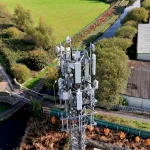Sponsored Links
European Commission and ITU Set out Future Broadband Targets and Regulation
Posted: 20th Sep, 2010 By: MarkJ
 The European Commission (EC) has today set out how it intends to implement its previously announced Digital Agenda (original May 2010 news), which among other things will seek to bring basic ISP broadband internet access to all Europeans by 2013 and superfast 30-100Mbps services by 2020.
The European Commission (EC) has today set out how it intends to implement its previously announced Digital Agenda (original May 2010 news), which among other things will seek to bring basic ISP broadband internet access to all Europeans by 2013 and superfast 30-100Mbps services by 2020.To achieve its goals the EC has put forward three complementary measures to facilitate the roll out and take up of "fast and ultra-fast broadband" in Europe. It's noted that, at present, only 1% of Europeans have a high-speed fibre optic broadband connection directly to their homes, compared with 12% of Japanese and 15% of South Koreans.
Neelie Kroes, Vice President of the EC's Digital Agenda plan, said:
"Fast broadband is digital oxygen, essential for Europe's prosperity and well-being. These measures will help to ensure that Europeans get the first-class internet they expect and deserve, so that they can access the content and services they want."
"Fast broadband is digital oxygen, essential for Europe's prosperity and well-being. These measures will help to ensure that Europeans get the first-class internet they expect and deserve, so that they can access the content and services they want."
The Three MeasuresHowever bringing such high speeds to all parts of Europe by 2020 will require substantial investment, which the EU as a whole estimates might cost £151-£226bn (€180-€270bn). The EC claims that around 80% of the money is eaten up by civil engineering costs, which it suggests could be "greatly reduced" by town planning and coordination measures; not to mention setting the right regulatory environment.
1. A Commission Recommendation on Regulated Access to Next Generation Access (NGA) networks sets out a common regulatory approach for access to new high-speed fibre networks that requires national telecoms regulators to ensure an appropriate balance between the needs to encourage investment and to safeguard competition. This will provide increased regulatory clarity to all market players, which is necessary to stimulate investment in fast and ultra-fast broadband. The Telecommunications Framework Directive (2002/21/EC) requires Member States to ensure that their regulatory authorities take the "utmost account" of the Commission Recommendation, justifying any departure from it.
Read Full Details
2. A Commission proposal for a Decision by the European Parliament and Council to establish a 5 year policy programme to promote efficient radio spectrum management and, in particular, ensuring that sufficient spectrum is made available by 2013 for wireless broadband (which will significantly contribute bringing fast broadband connections to people in remote areas and to make innovative services available across Europe). Efficient and competitive use of spectrum in the EU will also support innovation in other policy areas and sectors such as transport and the environment.
Read Full Details
3. A Broadband Communication that sets out a coherent framework for meeting the Digital Agenda's broadband targets and, in particular, outlines how best to encourage public and private investment in fast and ultra-fast broadband networks. It calls on EU Member States to introduce operational broadband plans for high and ultra high speed networks with concrete implementing measures, it provides guidance on how to cut investment costs and indicates how public authorities may support broadband investment, including making better use EU funds. It also announces plans by the European Commission and the European Investment Bank to bring forward broadband finance instruments.
Read Full Details
FTTH Council President, Chris Holden, commented:
"These broadband targets are really just a minimum and I hope Member States will be setting even more ambitious targets and concrete operational measures to achieve them in their high speed broadband plans."
"These broadband targets are really just a minimum and I hope Member States will be setting even more ambitious targets and concrete operational measures to achieve them in their high speed broadband plans."
Many of the proposals being put forward by the EC today have already been proposed under existing UK plans, which are working their way through the political system at a painfully slow pace. However the EC is at least more specific about what they want to achieve.
At present the UK can't even agree on what "super-fast" broadband actually is, nor a clear target for how many people should get it. This is a bit like putting your goal posts in a pit of quicksand instead of cement, making them easy to move as and when political necessity dictates.
However the UK government does at least aim to make a minimum broadband download speed of 2Mbps available to everybody by 2015, although this could all too easily be patched with a "quick-fix" Satellite solution; though that method lacks enough flexibility (usage allowances) for many modern applications and business uses. Latency, upload performance and affordability are also problem areas that have not been considered.
In related news the International Telecommunication Union (ITU) and United Nations (UN) have again reiterated their calls for access to basic broadband networks to be a "civil right" (original news). The new 'Future Built on Broadband' (PDF) report also challenges world leaders to make broadband internet access available to half of the global population by 2015.
Search ISP News
Search ISP Listings
Search ISP Reviews
Latest UK ISP News



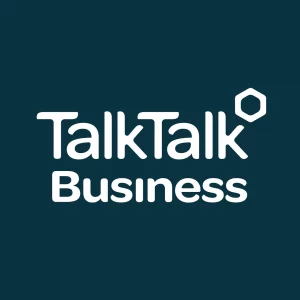
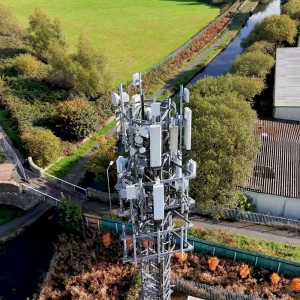

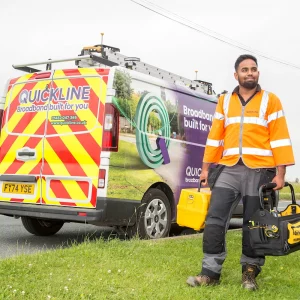
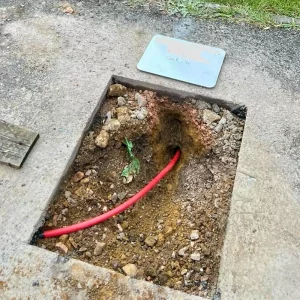
Cheap BIG ISPs for 100Mbps+
150,000+ Customers | View More ISPs
Cheapest ISPs for 100Mbps+
Modest Availability | View More ISPs
Latest UK ISP News
Helpful ISP Guides and Tips
Sponsored Links
The Top 15 Category Tags
- FTTP (6717)
- BT (3862)
- Politics (3033)
- Business (2733)
- Openreach (2628)
- Building Digital UK (2486)
- Mobile Broadband (2434)
- FTTC (2132)
- Statistics (2100)
- 4G (2062)
- Virgin Media (1997)
- Ofcom Regulation (1761)
- 5G (1692)
- Fibre Optic (1586)
- Wireless Internet (1581)
Sponsored
Copyright © 1999 to Present - ISPreview.co.uk - All Rights Reserved - Terms , Privacy and Cookie Policy , Links , Website Rules












